Caspian Energy Security Conference: UK and Caspian Countries Discussed Strategic Energy Cooperation
Recent Articles
Author: Caspian Policy Center
11/22/2023
NOVEMBER 21, LONDON- The best course of action for strengthening the Caspian Region’s infrastructure and developing alternative sources of energy was robustly discussed by experts at the Caspian Policy Center’s (CPC) Caspian Energy Security Conference. In preparation for a global London Energy Security Conference for next Spring, the CPC event brought together public and private officials from the UK and the Caspian Region to discuss how the international community can work together to navigate new supply lines and limit the impacts of global market volatility.
Efgan Nifti, CEO of the CPC, welcomed participants and guests while emphasizing the Caspian Region’s growing importance: “The region is once again becoming a true crossroads between Europe and Asia serving as a critical transit hub for energy, trade, and transportation networks. The Caspian provides access to important markets and serves as a gateway for the world to the Caucasus, Central Asia, and beyond.”
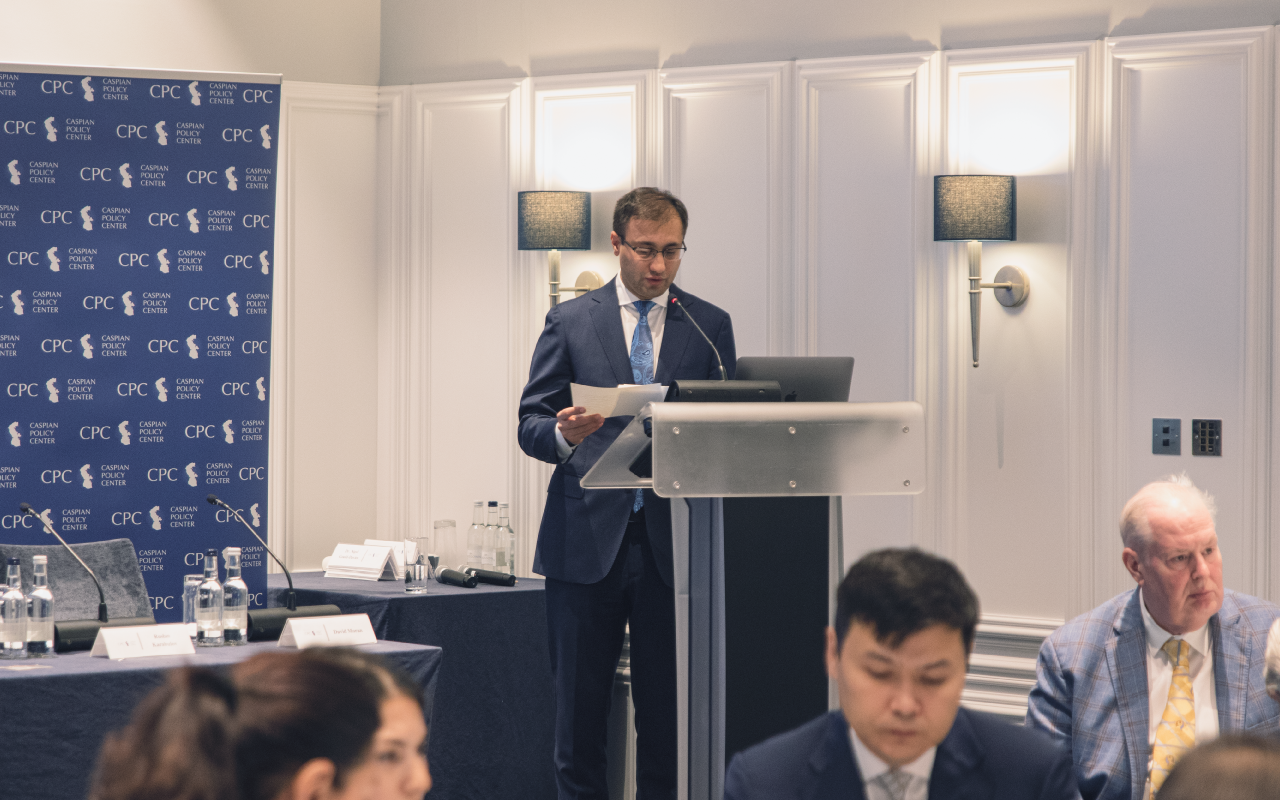
“Energy security remains central to our approach in the UK both to national security and international security.” Started Tim Stern, the International Energy Director for the Foreign, Commonwealth, and Development Office (FCDO), who delivered keynote remarks. Stern detailed the UK’s approach to energy security, and the role the Caspian Region can play.
“We think that regional connectivity and cooperation are clearly essential for both energy security, and for transition to net zero. Neither work if we try and work in isolation, and we see the Caspian Region as absolutely central to all of this from the UK perspective,” said Stern.
He further emphasized, “We’re really supportive of Caspian regional connectivity and development of the Middle Corridor to diversity supplies to the European Market to increase commercial access to the Caspian and to support new infrastructure.”
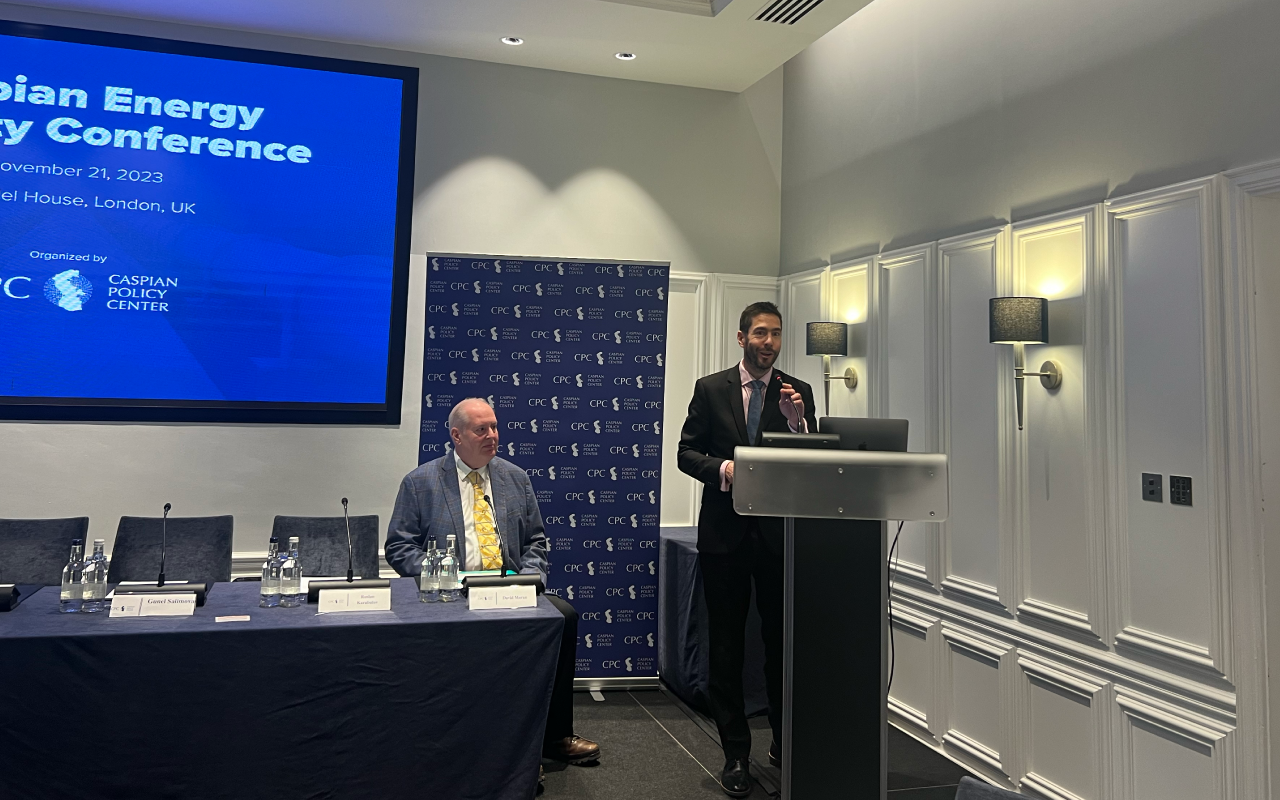
Commenting on the role Georgia can play in regional transit, specifically within the ‘Middle Corridor,’ Ambassador of Georgia to the UK Sofio Katsarava said, “Georgia is a responsible and reliable member of the international community and an integral part of the Middle Corridor, investing heavily in transport infrastructure development to ensure sufficient capacities for the years ahead. This implies land, air, and sea, and there are major infrastructure projects either underway or in the pipeline.”
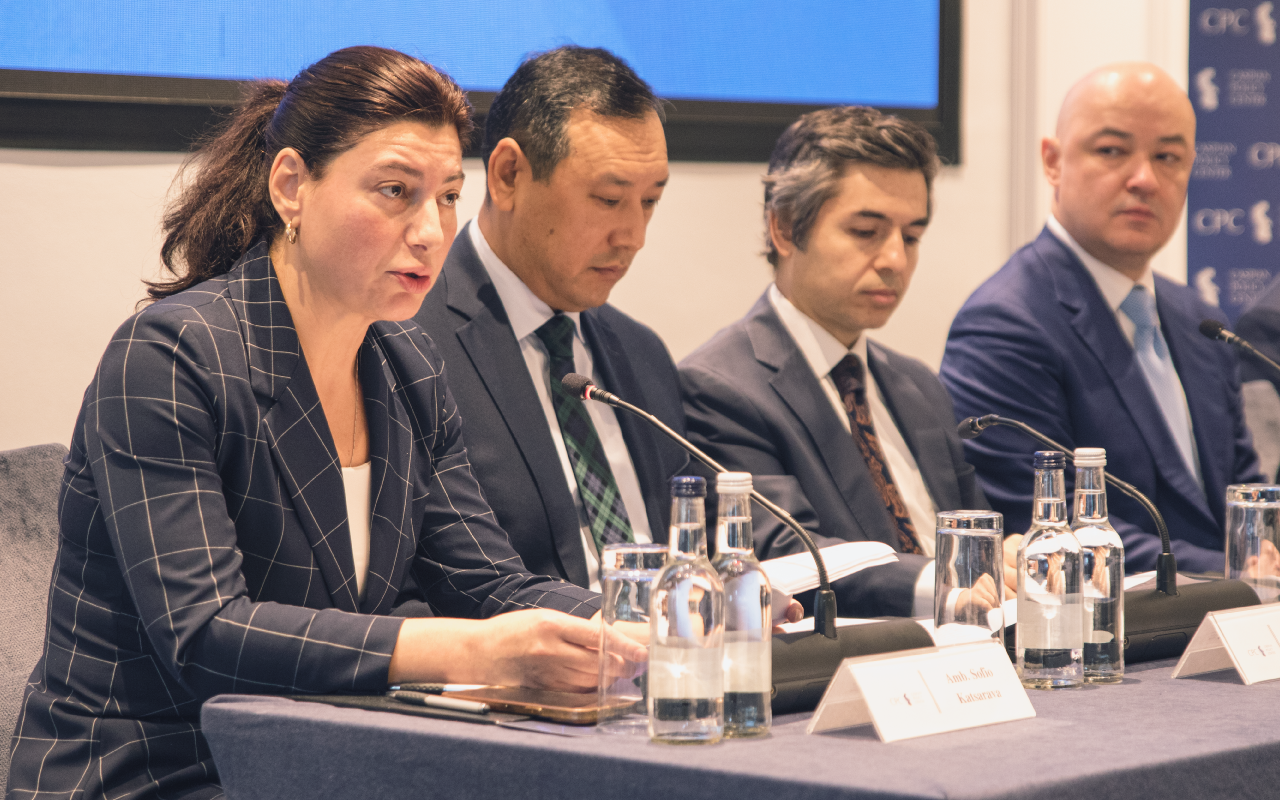
For Kyrgyzstan, regional connectivity takes precedence in the country’s foreign relations. “Strengthening the relations with the countries of the region is a top priority,” said Ulan Djusupov, the Ambassador of Kyrgyzstan to the UK. “By sharing knowledge and expertise, the UK and the Caspian Region can accelerate progress towards sustainable energy solutions,” Ambassador Djusupov continued.
Regarding renewable, and “green,” energy sources, the ambassadors agreed that the Caspian Region has significant potential, but it must continue to develop regional connectivity for its success to come to fruition.
“The green transformation is, I think, the more difficult issue because on paper, we are all committed to this, but as the deadlines approach, we start to realize how challenging this will be on the way ahead,” reflected Osman Koray Ertaş, the Ambassador of Türkiye to the UK.
“While we pursue a green transformation, we need uninterrupted, affordable, and sustainable energy supply for our economies. This is just one reason that makes the Caspian Region strategic. The Caspian Basin has been a contributor to global energy security for many decades now. With our historical ties and economic ties, Türkiye stands as an integral part of it, advocating for increased cooperation and connectivity to further the region's potential,” Ambassador Ertaş added.
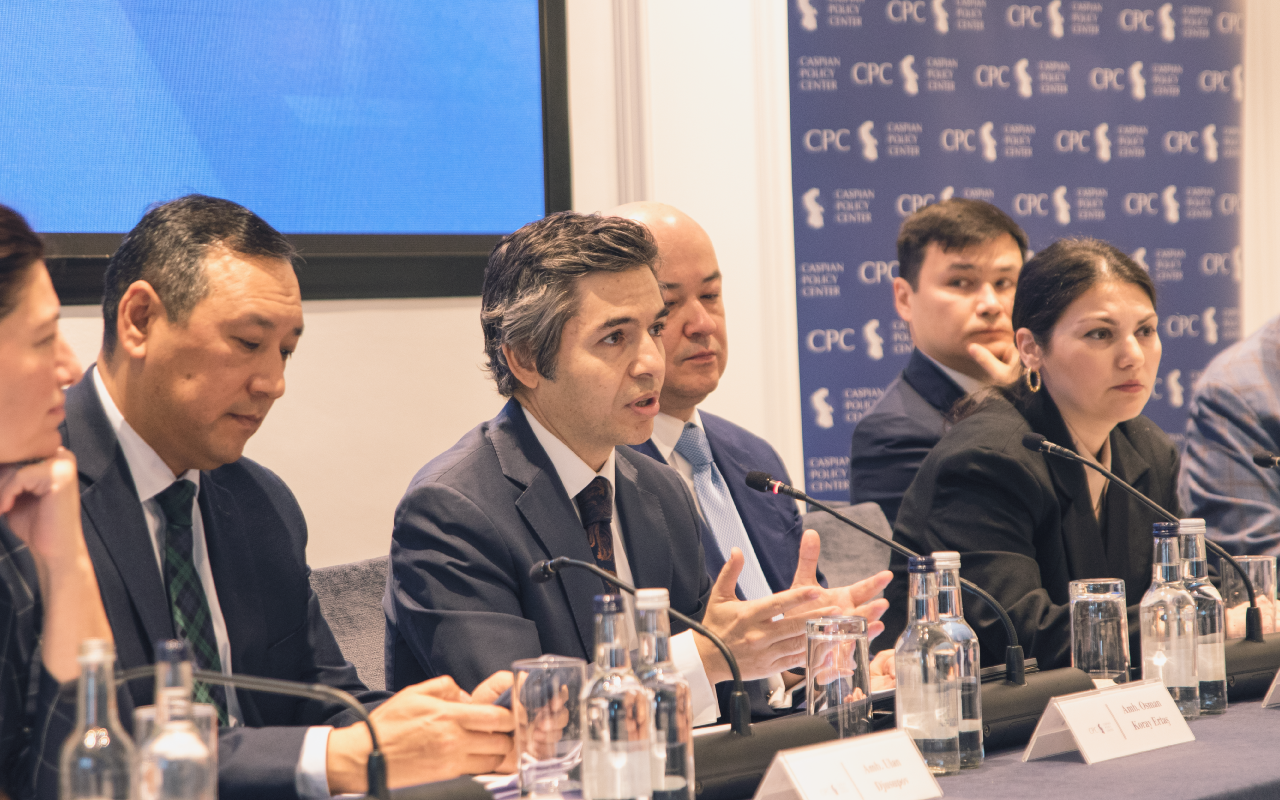
Ravshan Usmanov, newly appointed Ambassador of Uzbekistan to the UK made his first public remarks less than a week into his new position at the Caspian Energy Security Conference, he pointed out that the region is well-positioned for the energy transition, despite being historically focused on traditional energy resources: “We are now on track to a more secure and greener energy future. We have realized, for instance, that while we may no longer be as rich as we were in hydrocarbon-based energy, we are very rich indeed in other natural energy sources, namely, sunshine.”
“We in Uzbekistan and across Central Asia take energy security and the challenges of climate change very seriously indeed. And we know that we are vulnerable, and we need to take action. And we will listen to what is said today here by all the experts,” said Ambassador Usmanov.
The Middle Corridor, a transit route that moves products from Kazakhstan, over the Caspian Sea to Azerbaijan, and onward to Europe, has also been a critical player in the regional transition toward green energy sources, participants agreed. The region is now demonstrating more sustainable methods of transit, and technological upgrades that produce less carbon emissions, and officials are recognizing the importance of implementing greener infrastructure. And for the Caspian Region, the move toward more sustainable transport methods has fared well with investors.
“Azerbaijan is making valuable contributions to the sustainable operation of the Trans-Caspian international transport through the so-called Middle Corridor, which holds significant potential for boosting the world trade in the most efficient value,” said Gunel Salimova, Counsellor for the Embassy of Azerbaijan to the UK. She highlighted “Azerbaijan is a reliable energy partner and has important role in global energy security. It would not be an exaggeration to say that successful cooperation on energy constitutes the backbone between the Azerbaijan-UK relationship”
Salimova concluded, “In Azerbaijan, we believe that our region has seen enough confrontation, destruction, and suffering. We underline Azerbaijan’s strong commitment to the agenda of normalization and peace with Armenia and expect that Armenia will be able to utilize this historic opportunity. We also invite all partners to support Azerbaijan’s post-conflict reconstruction and rehabilitation efforts toward a more secure and prosperous region.”
“The plans to develop the Trans-Caspian routes or Middle Corridor not only helps its internal logistics, but makes it an attractive destination for international companies looking to improve supply chain efficiencies,” said Ruslan Karabulov, the Counsellor for the Embassy of Kazakhstan to the UK.
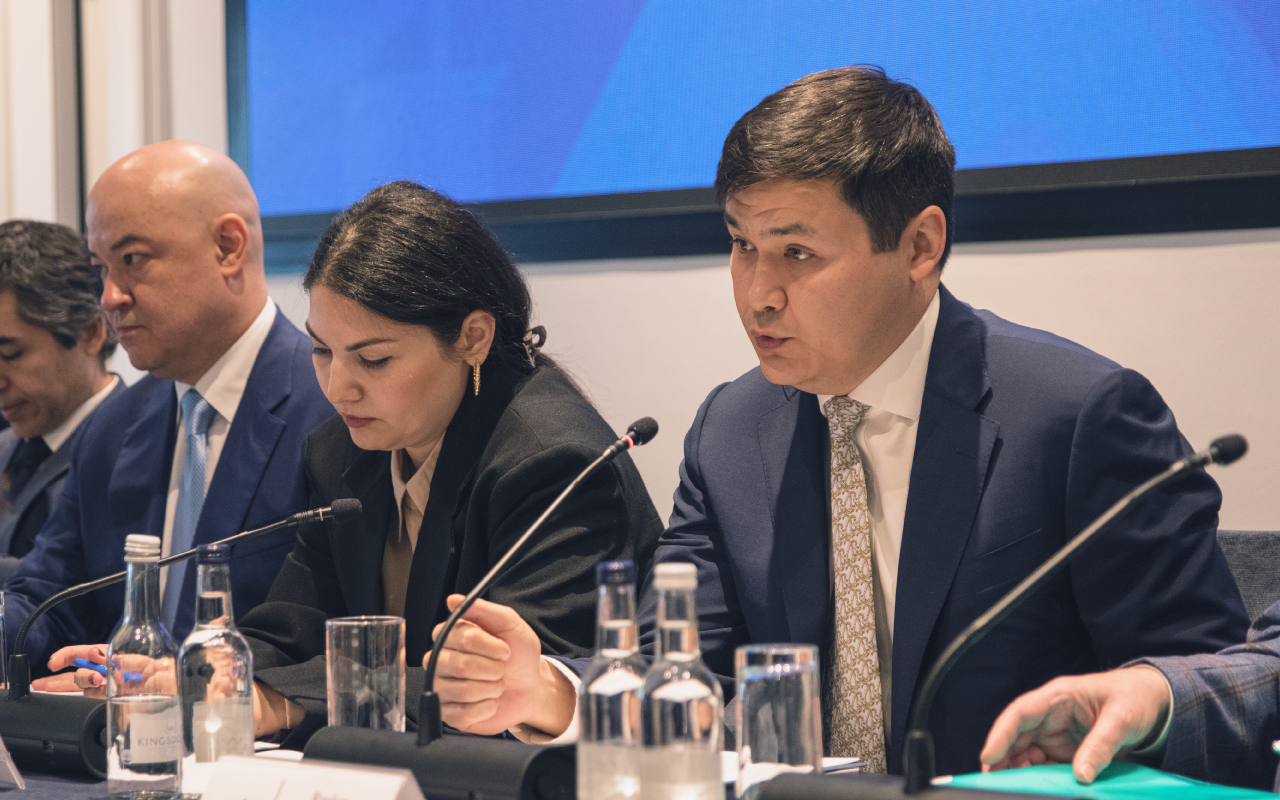
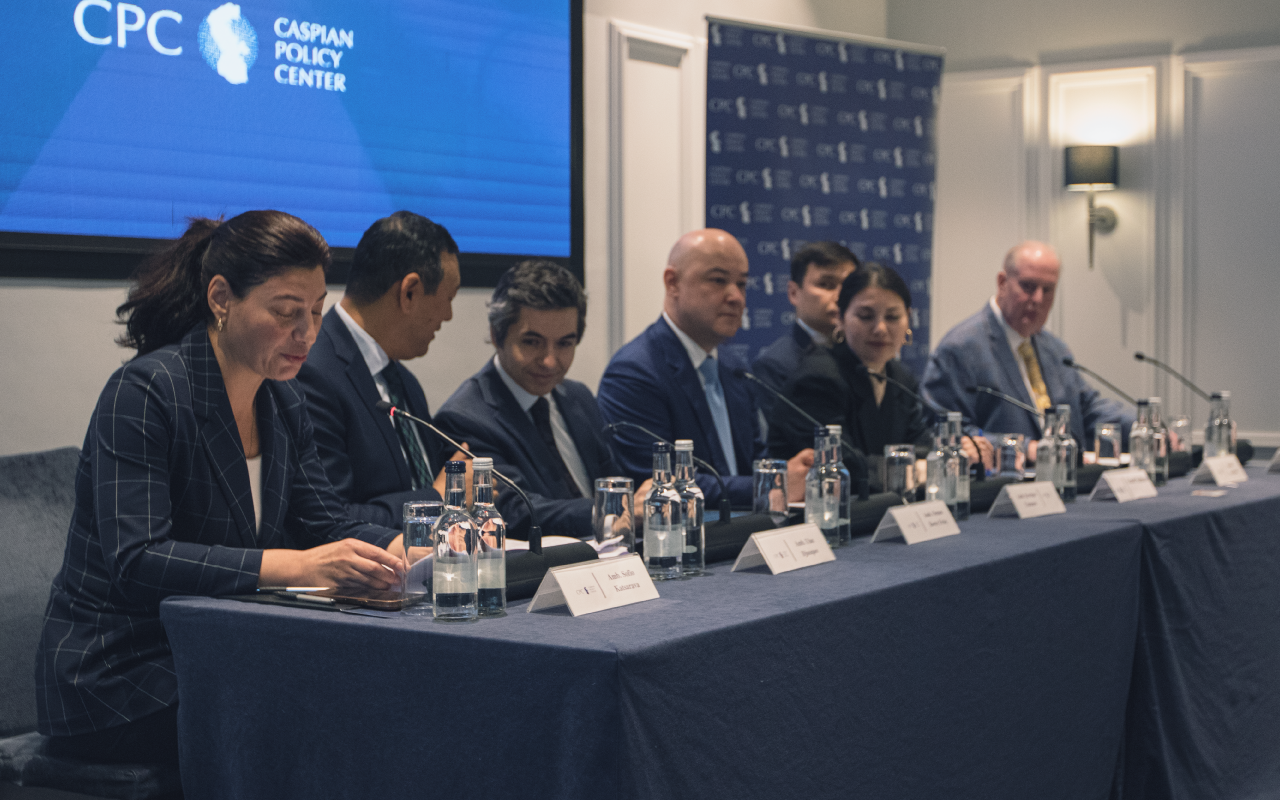
All panelists agreed that Europe can benefit significantly from the Caspian Region’s transit capabilities, especially in light of the conflict in Ukraine, during the second panel of the Caspian Energy Security Conference, moderated by Dr. Nigel Gould-Davies, a Senior Fellow for Russia and Eurasia at the International Institute for Strategic Studies (IISS). . However, improvements still need to be made in regional infrastructure for this to be a viable alternative to Europe’s traditional transit routes.
“As part of our study we looked at regional integration and we looked at ways of what needs to be done to make it better and what investments are needed and what sort of measures. As a result of this study, 39 actions were identified as priorities, 32 of them for investment projects totalling 18.5 billion euros, while seven are soft connectivity measures,” said Ekaterina Miroshnik, Director of the Infrastructure-Eurasia Team at the European Bank for Reconstruction and Development (EBRD), referring to a study completed by the EBRD.
“The Trans-Caspian Network (Middle Corridor) can bring significant benefits to domestic, regional, and intercontinental users if the bottlenecks are resolved,” Miroshnik continued.
Another challenge has been in the upgrade of renewable energy facilities in the Caspian Region. The panelists agreed that the potential is there, but there are still significant bottlenecks that stand in its way.
“I think the main thing here for governments is that permitting approval for green projects is challenging,” said Campbell Keir, the President of Energy Industries Council. Due to ongoing geopolitical uncertainty and the disruption of supply chains, “Things have shifted away from the green agenda towards energy security,” she continued. “In the Caspian, what we can clearly see is that is going to be a heavy emphasis on fossil fuel investment over the next decade.”
John Roberts, an Energy Security Specialist, agreed that there is a short-term switch away from renewables as markets are in need of easy access to energy resources as their traditional supply lines are in flux.
“Government policy, as I understand it, is to take a decision on hydrogen development early next year. And that decision will include how much is for export. And that's quite a rational approach. The question now is whether Azerbaijan, which has plans for as much as 22 gigawatts of electricity focused on hydrogen, will do the same,” said Roberts.
But, regardless of the rising demand for traditional energy resources, he noted that, “Lots of good work has been done in Azerbaijan and Kazakhstan on the development of renewables, to replace the coal, because coal is a great source of emissions.”

The third panel, moderated by Dr. Eric Rudenshiold, an Advisory Board Member at the Caspian Policy Center, focused on the renewable energy potential of the Caspian Region. Panelists added onto the previous panel’s discussions on how to navigate energy transition, detailing what investments are needed to reach net-zero carbon emission targets.
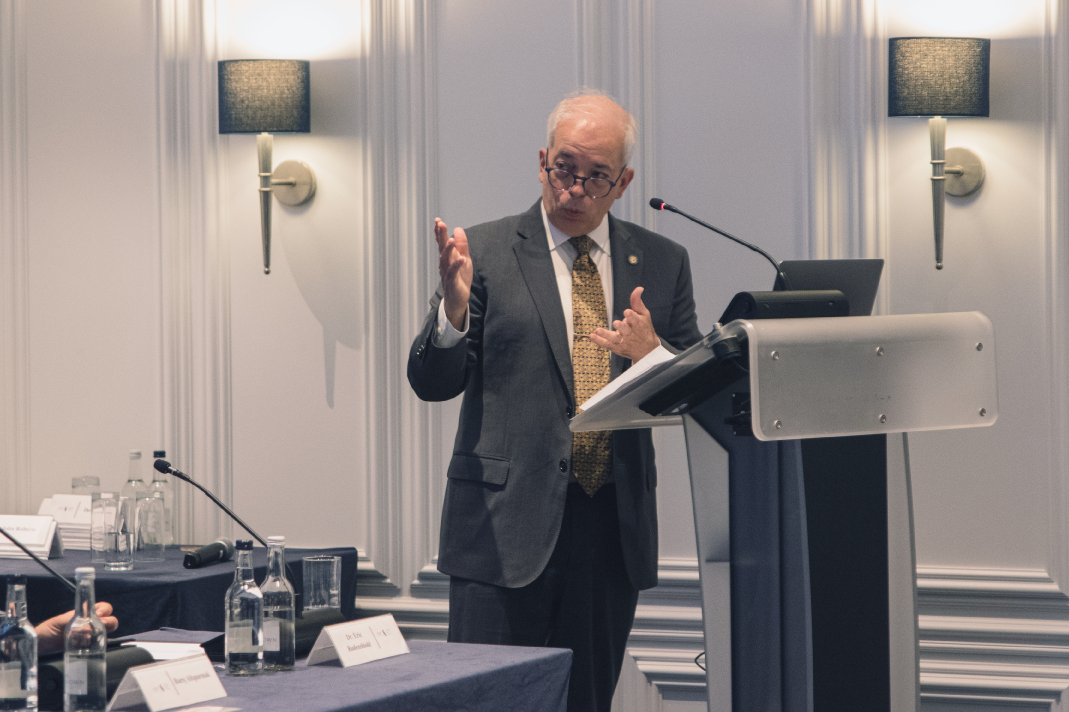
Speaking about EBRD’s commitment to supporting regional projects in line with the objectives of the Paris Agreement, highlighting the energy transition and energy security as two central phenomena in global affairs, Aida Sitdikova, Director of Energy Eurasia, Middle East, and Africa at the European Bank for Reconstruction and Development (EBRD), added: “We don’t see these two as mutually exclusive. We actually think that the energy transition is supportive of energy security.”
And the EBRD is not just using rhetoric, but it is taking action to back its claims, she noted. Specifically, in Central Asia, the EBRD, “...financed 2.7 gigawatts of renewables in Uzbekistan in just less than four years,” said Sitdikova.
Dr. John Murton CMG, Senior Sustainability Advisor at the Standard Chartered Bank, spoke about energy systems and transition. Claiming that the energy transition will be inevitable, Murton encouraged region’s countries to work towards adapting by considering marginal costs of production in the industries affected by the transition. “It is important that we prepare for the coming energy transition early in order to make it orderly, because when you prepare early, change can happen in an orderly fashion,” he added.
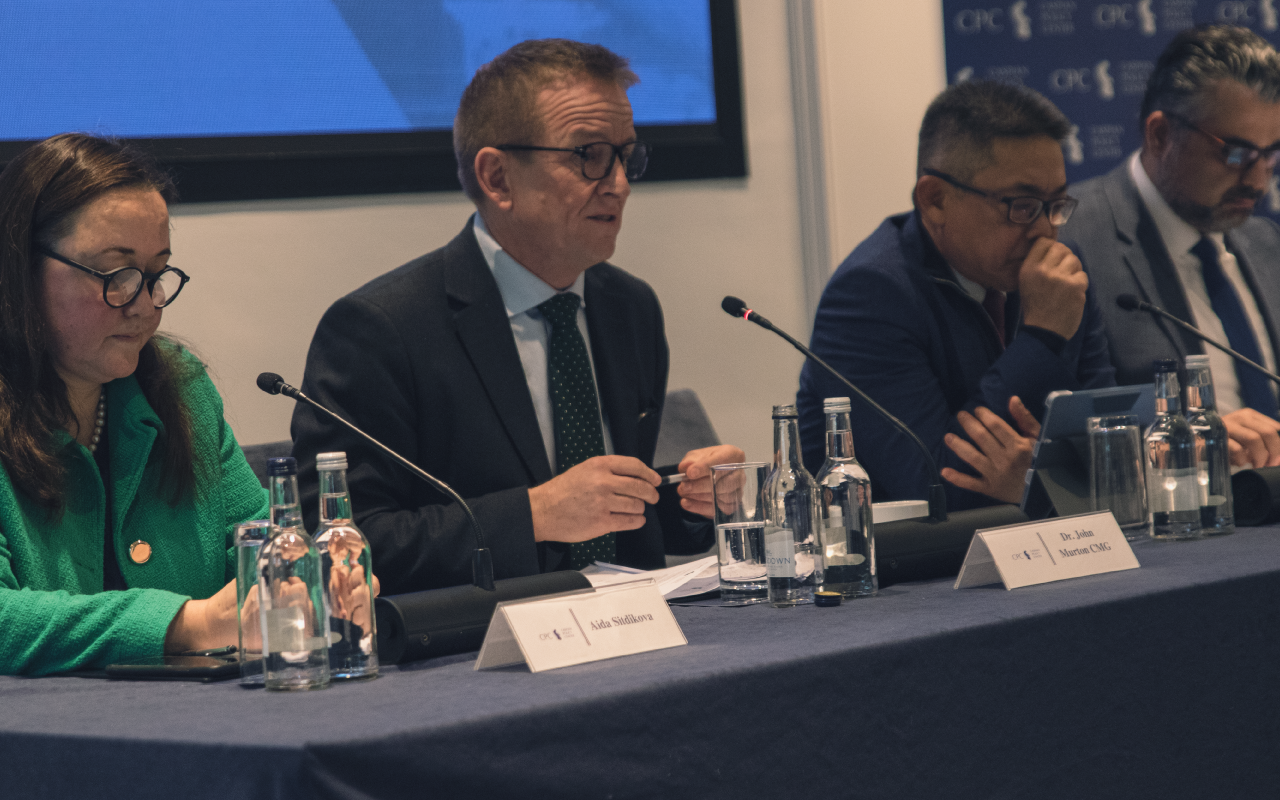
Preparation for the energy transition should be a prime concern for energy producing countries in the Caspian Region, because it, “...Will happen more swiftly than many people would commonly realize. It will happen with quite a noticeable geography as it evolves.”
For the Caspian Region, the energy transition is especially important. The region is already facing the consequences of climate change, and it cannot afford to wait, he concluded.
Eugene Seah, the Chief Operations Officer of the Port of Baku explained that the Port of Baku is implementing policies to limit its impact on global carbon emissions. While touching on the imminent challenges facing the Caspian Sea’s littoral states, including shrinking sea levels, Seah also spoke about the Port of Baku’s net-zero objectives: “We are trying to keep pace with the Azerbaijani government because the government has a policy of cutting down emissions by 2040. The Port of Baku is more ambitious perhaps and is trying to reduce emissions by 2025.”
Finally, Barış Altıparmak, General Director of Kolin Azerbaijan and Azerbaijan’s Representative of the World Turkish Business Council (DTIK), emphasized regional cooperation to overcome environmental challenges. “Toward empowering the Caspian Region, we should act as a coordinated, integrated, and effective cooperation. This regional prosperity will support energy security also for Europe,” he said.
“The only thing that will succeed for our targets is to cooperate. Cooperation is supposed to be our essence target, to ensure our regional energy security,” Altıparmak concluded.
